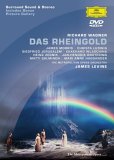![The Smashing Pumpkins - 1991- 2000 - Greatest Hits Video Collection [2001]](/pictures/1027306.jpg) The Smashing Pumpkins - 1991- 2000 - Greatest Hits Video Collection | DVD | (19/11/2001)
from £11.98
| Saving you £3.01 (25.13%)
| RRP
The Smashing Pumpkins - 1991- 2000 - Greatest Hits Video Collection | DVD | (19/11/2001)
from £11.98
| Saving you £3.01 (25.13%)
| RRP The Smashing Pumpkins: 1991-2000 Greatest Hits Video Collection visually charts the progress of the band from grunge rockers to AOR stars. Shot on Super 8, the grainy early videos ("Siva" and "Rhinoceros") depict the progressive psychedelia of their early sound. Despite the continuation of an alternative music style on Siamese Dream (the group's first album with Virgin), the videos from this era become more mainstream in a blatant attempt to get MTV airplay. Matching the commercial and accessible style of the album, the Mellon Collie and the Infinite Sadness videos are big-budget numbers. Drawing on their long-standing fascination with 70s youth culture, the "1979" video provides another romanticised depiction of that period, while the awarding-winning "Tonight, Tonight" is a clever remake of Méliès Trip to the Moon. The epic style continues on later videos, with "Perfect" being a sequel to "1979". Also included is the harrowing short film by Jonas Akerlund, "Try" (a 15-minute extended version of the "Try, Try, Try" video), which follows the last days of a homeless, pregnant young woman. Also included are live performances from their final concert. This is a fitting anthology of both the Pumpkins' restraint and excess. On the DVD: Due to the extensive number of bonus features available with each video (including commentaries, outtakes and behind the scenes footage), the initial selection process is far from straightforward, which is why the title menu includes a Help option to guide the viewer through the complex procedure. DVD-ROM users can also access exclusive Smashing Pumpkin art.--John Galilee
 Wagner: Das Rheingold -- Metropolitan/Levine | DVD | (14/10/2002)
from £19.99
| Saving you £-3.00 (N/A%)
| RRP
Wagner: Das Rheingold -- Metropolitan/Levine | DVD | (14/10/2002)
from £19.99
| Saving you £-3.00 (N/A%)
| RRP It takes a certain amount of forethought if Das Rheingold is to be more than a series of special effects scenes, though moments like the appearance of the giants through the mist or Alberich's transformations need to be as thrilling as they are here. As always in his Wagner, and perhaps especially in this very traditional 1990 Metropolitan Opera production of the Ring cycle, James Levine keeps to the forefront the underlying humanity of Wagner's gods and monsters. In the first scene, for example, he brings out the thoughtless, callous frivolity of the Rhine maidens as they precipitate the events of the four operas by taunting the gnome Alberich: it helps that they swirl around, green and gold, in a convincing representation of the bottom of the Rhine, but the emotions are the point. Ekkehaard Wlaschiha is a convincingly menacing Alberich partly because Levine brings out his vulnerability as well as his evil temper. James Morris is splendid as the younger less care-worn Wotan and Siegfried Jerusalem as Loge enjoys the sarcasm of his cynical commentary on Wotan's aspirations. The smaller parts have luxury casting: Matti Salminen as Fafner and Christa Ludwig as Fricka, for example. On the DVD: Das Rheingold comes with a photo gallery of the Metropolitan Opera production and with menus and subtitles in German, French, English, Spanish and Chinese. Disappointingly though it is presented in American NTSC format with standard TV 4:3 visual ratio. But it does have an excellent clear acoustic in all three of its audio options: PCM stereo, Dolby Digital 5.1 and DTS 5.1. --Roz Kaveney
 Wagner: Siegfried -- Metropolitan/Levine | DVD | (14/10/2002)
from £19.19
| Saving you £2.80 (14.59%)
| RRP
Wagner: Siegfried -- Metropolitan/Levine | DVD | (14/10/2002)
from £19.19
| Saving you £2.80 (14.59%)
| RRP James Levine makes Siegfried, sometimes the problem child among the four operas of Wagner's Ring cycle, attractive and interesting. He is aware of the darker side of some of the comic scenes--the seemingly benevolent dwarf Mime carries the weight of Wagner's many prejudices--but manages to keep them uneasy rather than positively sinister thanks to the finally judged performance of Heinz Zednik. Siegfried Jerusalem is admirable as Siegfried, full of boyish enthusiasm during the reforging of the sword, and of authority in his confrontations with the dragon and with Wotan. (The dragon itself is, as so often, an unfortunate compromise between realism and stylisation.) James Morris is extraordinary in Wotan's scenes here, his combination of injured pride and relieved joy when Siegfried demonstrates, by shattering his spear, that Wotan has entirely lost control of events is exemplary. This is an opera whose many and various scenes are all preludes to its emotional core: the love duet which comes when Siegfried awakens Brunnhilde. Jerusalem and Hildegard Behrens convey both the innocence and the ardor of this duet; while Levine gets extraordinary playing from the Metropolitan Opera orchestra throughout, but especially here, where a chamber-like delicacy applies to much of the music. On the DVD Siegfried on this disc is a recording of the 1990 Metropolitan Opera production and comes with both menus and subtitles in German, French, English, Spanish and Chinese as well as a picture gallery. Awkwardly it is presented in (American) NTSC format not PAL, and the visual ratio is standard TV 4:3. Better is the choice of sound formats--PCM Stereo, Dolby Digital and DTS digital--which provide a spacious acoustic that gives proper weight to the climaxes, and an appropriate delicacy to Wagner's subtler passages. --Roz Kaveney

Please wait. Loading...
This site uses cookies.
More details in our privacy policy